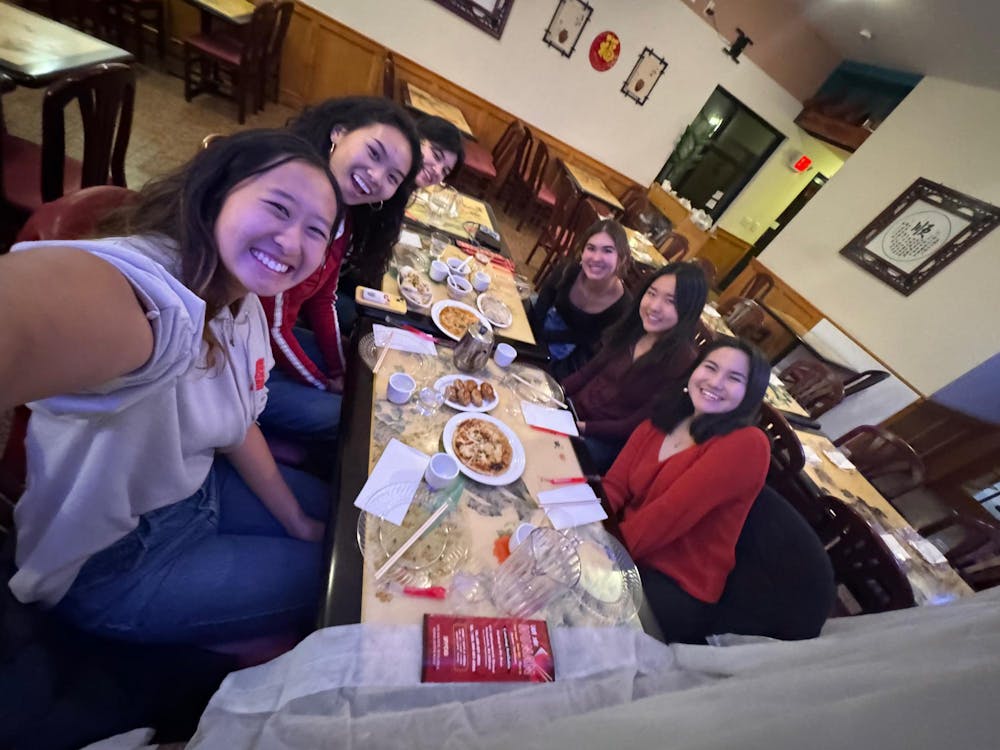Valentine’s Day cuisine goes beyond candy hearts and boxes of chocolate. While the holiday celebrates blossoming romance, it equally serves as a reminder to honor other kinds of love, including affection for family, friendships, home, places, and more. Personally, I advocate for a love of food.
Food is a source of joy in my life that never fails to satisfy my appetite. Moreover, through its ability to unite families, friends, partners, food is a symbol of love itself. Reflecting on their cultural backgrounds, Princeton students shared dishes and delicacies with The Prospect that represent love to them.
Iran
For Arman Nemati ’27, Persian culture played a prominent part in his upbringing. Nemati shared that red apples are a Persian symbol of love, beauty, and fertility. The symbol is seen in many ancient Persian poems that intertwine red apples with themes of love.
Nemati explains that the apple must be red, because “when people fall in love, their cheeks turn red from blushing.”
According to Nemati, the red apple makes appearances in special, festive occasions with his family, serving as a positive token. “We always put a red apple on our table for our New Year for a year filled with love,” he said.
Philippines
Kirsten Pardo ’24 shared a dish from her home country, the Philippines. “There’s a stew dish called sinigang — it’s my favorite Filipino dish and always invokes a warm feeling,” Pardo said. “Since my family knows it’s my favorite, they make it every time I return home.”
Sinigang is a hearty stew typically made from tamarind, meat, and vegetables and is often served with rice. With such simple ingredients, the star of the dish is its signature sour tang that comes from the tamarind.
Pardo said, “Even at Princeton, I make it and share it within the Filipino community here.” Pardo sees herself making this for her family in the future and continuing to pass the recipe down.
Belgium
Zara Kamga ’27 developed a deep connection to Belgian food from spending her childhood summers in Belgium with family.

“My mom moved to Belgium when she was quite young. One of the dishes she grew up eating was potato gratin,” Kamga said. “Since my mom is an amazing cook, she makes certain meals as a sort of love language. This is one of them.”
Potato gratin is an indulgent, French classic where layers of thinly sliced potatoes are baked in a creamy cheese sauce. For Kamga, this dish reminds her of her mother’s love and her Belgian roots.
Cameroon
While Kamga has a Belgian background from her mother’s side, she is Cameroonian on her father’s side. She shared that the other dish her mother loves to make for her family is a Cameroonian dish called “beignet et haricot,” or beignets with stewed beans.
“As I grew up I realized how amazing it was that she learned to cook dishes from so many different cultures, showing appreciation for all the people she meets in her life,” Kamga said. “Her cooking for my family is truly a form of endearment as she does her best to pass down the love she absorbed from various cultures (and of course leave our appetites more than satisfied).”
China
As a Chinese-American, I have come to believe that dim sum is the ultimate meal of love. Dim sum, in fact, translates directly to “touch the heart.” This Cantonese brunch meal consists of bite-sized food portions served in steaming bamboo baskets — from numerous types of dumplings to hot congee — that are designed to fulfill the heart’s cravings. Traditionally, dim sum is shared around a large, revolving round table with big groups of friends or family, accompanied by warm conversation and laughter.
Initially, these dishes’ simplicity may come off as a surprise. However, the memory and intention tied to the dishes transform them from a seemingly commonplace food item into valuable pockets of love.
Shannon Ma is a staff writer for The Prospect. She is in the Class of 2027 and comes from Saratoga, Calif. She can be reached at sm2818@princeton.edu.








